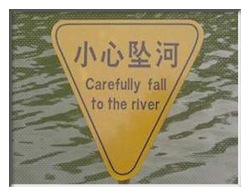I was thinking back to a point 15 years ago when my kids were 2 and 3 years old. I thnk the first word they learned was “mine.”
That stuck-in-my-head memory came as a result of listening to two managers talk about moving an employee from one group to the other. I was fully expecting to hear “I’ll let him join your group if you give me a bushel of corn and a couple of otter skins.”
What is it about being a manager that makes many of us so territorial and possessive? It’s almost as if deep down we feel we own our employees, as if our value and importance rises by the number of people we manage.
For many years I was actively involved in an amazingly run, large scale volunteer organization. It was at North Point Community Church where I learned three things that have radically improved my ability to lead.
Everyone in your organization is a volunteer.
This may be the single best piece of advice I can give to new managers – treat every co-worker as a volunteer because they are. They chose to be here and they can choose when to leave. You chose them over others and you can ask them to leave.
Notice how often a volunteer leader says thank you to their teams? Ever notice how much they seem to go out of their way to show their appreciation? That’s because they know how fragile and co-dependent these relationships are.
My wife and I have always believed that our kids are a gift – they are on loan from God. We are given the chance to do the best we can while they are in our custody only to know that one day they will leave. So are volunteers. So are employees.
Imagine if you started each day recognizing that every member of your team was a gift to you.
Everyone in your organization is on a river.
People are not stagnant by nature; they crave for another destination. Recognize that when you hire an employee that is not the end of their career destination but a turn along that river.
 There are two ways you can react to that. You can assume that they are only there for a while so use them up and get the most you can out of them or you can float with them and help them navigate their path.
There are two ways you can react to that. You can assume that they are only there for a while so use them up and get the most you can out of them or you can float with them and help them navigate their path.
I tell my team that I want their resume to be better next year than now. I want them to look more attractive to the market than when they started. I choose to align the tasks I need to accomplish with something that others want to steal because I know that in the long run the house wins.
If I help my team improve their resumes, I make them more valuable to me as well. When they interview outside who do you think has the advantage? As the house I always have a chance to match outside interests because I have inside information (that is if I got to really know my team). Plus, having the added confidence of my employees that I will help them grow gives me a great advantage. The more I demonstrate I want to invest in their career growth the more they will want to stay in my organization.
Everyone in your organization is there for a different reason.
When’s the last time you asked someone on your team “Why are you here?” Sure everyone wants to get paid, have a job, support their outside interests – but there’s a ton of other companies. “Why are you here?” Why this place at this time? It’s really important to understand that because if the reason they are there starts to wane something else will capture their attention.

At a previous company I used to hand out blank index cards and asked them to answer two questions anonymously.
- Why did you come to ISS?
- Why are you here now?
If you don’t know these things you are no longer playing with house odds.
When someone joins my group I recognize they are a gift, on loan and my job is to help us both accomplish the reason we both volunteered for this relationship. I recognize that it is likely that someday I won’t have what they need and I should be prepared to help them find it elsewhere in the company. I also recognize that what they might need is not within our corporate walls and I should be prepared for that as well. That is my job. I am a volunteer.
Now before you dismiss my ideas as rainbows and lollipops and that these could never work with a high performance team keep in mind that I too demand results from my team. On many occasions I have had to un-volunteer people because they could not do their job. Getting great performance from teams is not about carrots and sticks or incredibly long hours; it is about creating motivating environments. Nothing is more motivating than having a boss that respects your relationship and goals. This is a gift.
These gifts are worth far more than a mere bushel of corn and a couple of otter skins.






